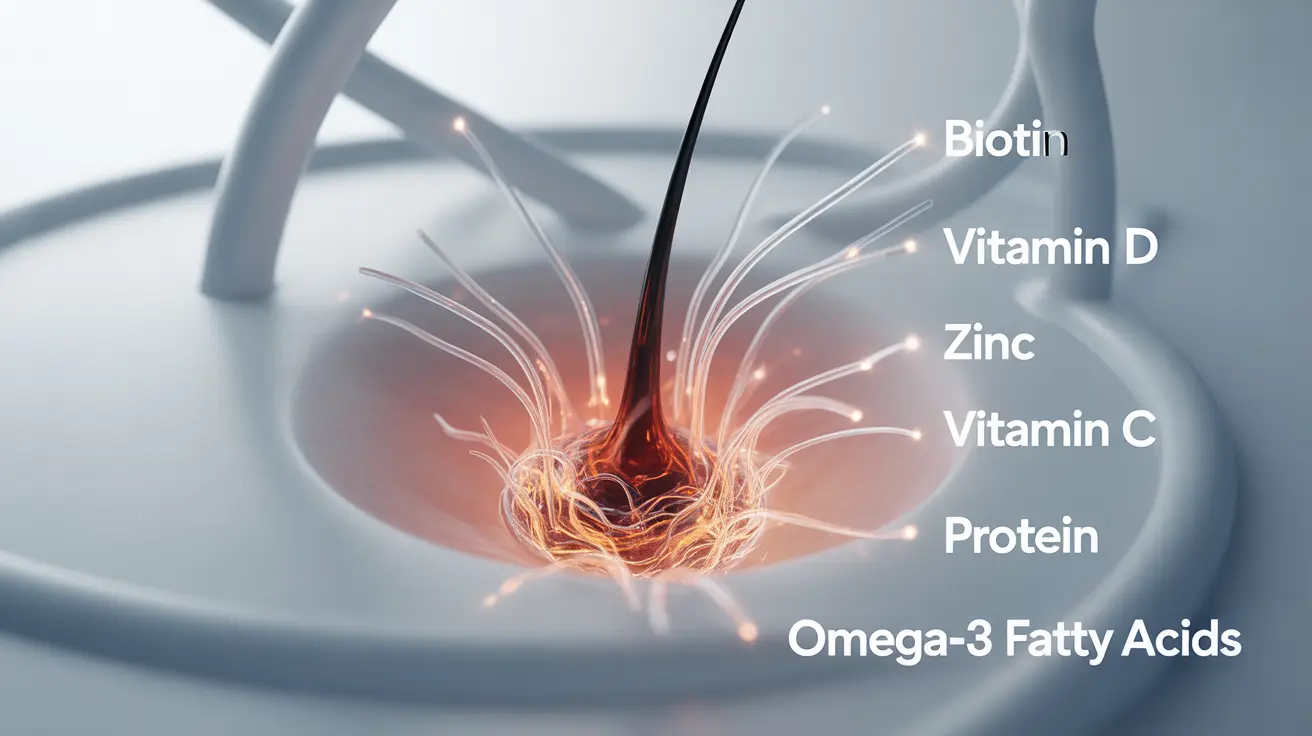If you're struggling with hair loss or slow hair growth, you've likely encountered countless advertisements for hair vitamins promising miraculous results. But do hair vitamins work? This comprehensive guide explores the science behind hair supplements, their potential benefits, and what you should know before incorporating them into your routine.
Understanding the relationship between nutrition and hair health is crucial for making informed decisions about supplementation. While some vitamins and minerals play essential roles in hair growth and maintenance, the effectiveness of hair supplements depends on various factors, including your current nutritional status and overall health.
The Science Behind Hair Growth and Nutrition
Hair growth is a complex process that relies on proper nutrition and various biological factors. Your hair follicles require specific nutrients to produce healthy, strong hair strands and maintain normal growth cycles.
- Biotin (Vitamin B7)
- Iron
- Vitamin D
- Zinc
- Vitamin C
- Protein
- Omega-3 fatty acids
When Hair Vitamins May Be Beneficial
Hair supplements might be most effective in specific situations:
- Diagnosed nutrient deficiencies
- Restricted diets that limit certain food groups
- Medical conditions affecting nutrient absorption
- Periods of increased stress or hormonal changes
However, it's important to note that taking hair vitamins without an underlying deficiency may not provide any additional benefits for hair growth or strength.
Understanding Hair Vitamin Limitations
While hair vitamins can support healthy hair growth in some cases, they're not a magic solution. Several factors influence their effectiveness:
- Individual nutritional needs
- Underlying health conditions
- Genetic factors
- Age and hormonal status
- Quality and formulation of the supplement
The Role of Diet in Hair Health
A balanced diet often provides all the nutrients necessary for healthy hair growth. Focus on including:
- Lean proteins (fish, poultry, eggs)
- Leafy green vegetables
- Nuts and seeds
- Whole grains
- Fruits rich in antioxidants
Safety Considerations and Potential Risks
Before starting any hair supplement regimen, consider these important factors:
- Possible interactions with medications
- Risk of excessive vitamin intake
- Quality and regulation of supplements
- Cost versus potential benefits
Frequently Asked Questions
Do hair vitamins really work for promoting hair growth and preventing hair loss?
Hair vitamins can be effective when addressing specific nutrient deficiencies that affect hair health. However, they may not provide significant benefits for individuals who already maintain adequate nutrition through their diet.
What nutrients are essential for healthy hair, and how can a balanced diet support hair health?
Essential nutrients include biotin, iron, vitamins D and C, zinc, protein, and omega-3 fatty acids. A balanced diet rich in whole foods, lean proteins, fruits, vegetables, and healthy fats typically provides these nutrients in sufficient amounts.
Can hair supplements cause adverse effects, and what are the potential interactions with other medications?
Hair supplements can cause side effects such as digestive issues and may interact with certain medications. Always consult with a healthcare provider before starting any supplement regimen, especially if you're taking other medications.
How do I determine if I have a nutrient deficiency that could be contributing to hair loss?
The most reliable way to identify nutrient deficiencies is through blood tests ordered by a healthcare provider. They can assess your levels of key nutrients and recommend appropriate supplementation if necessary.
What are the safest and most effective non-supplemental methods for improving hair growth and reducing hair loss?
Effective non-supplemental methods include maintaining a balanced diet, managing stress, using gentle hair care practices, avoiding harsh chemical treatments, and addressing any underlying health conditions with professional medical guidance.




